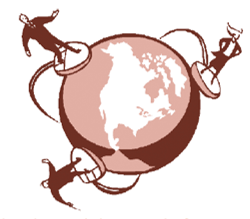Ruth Murray-Webster and Peter Simon
At various times in the past we have written about the challenges posed by cultural differences on international project teams. Project management is difficult enough when the core team and stakeholders are predominantly from one national and organisation culture. Increasingly this is not the case and we were directly reminded about this when we worked for three days with a group of 25 Project Managers from 20 different countries across all five continents.
 A Lucid Thought is not the place to go into detail about diagnosing cultural differences and working out strategies for managing them, many others have written about how to do this. We thought it would be useful though to think about communications planning if your project team is geographically spread and containing people from a wide variety of backgrounds. In such a situation it is essential to get to know the people involved as individuals as far as is practically possible, and to find out about their likes and dislikes, preferences and irritations, strengths and weaknesses when it comes to communication relating to the project.
A Lucid Thought is not the place to go into detail about diagnosing cultural differences and working out strategies for managing them, many others have written about how to do this. We thought it would be useful though to think about communications planning if your project team is geographically spread and containing people from a wide variety of backgrounds. In such a situation it is essential to get to know the people involved as individuals as far as is practically possible, and to find out about their likes and dislikes, preferences and irritations, strengths and weaknesses when it comes to communication relating to the project.
Of course this is easy to say and much more difficult to do, so we thought we’d give you some practical things to try. The checklist below is grounded in the academic research into managing cultural differences, but presented in a format that will hopefully be practical for all to use. Note that the term stakeholder has been used throughout to include your immediate team as well as those with a governance role or a wider passing interest.
-
List all the stakeholders for your project, as individual names.
-
Think about the power and infl uence that each stakeholder has to help or hinder you - is it high or low?
-
Think about the interest that each stakeholder has in your project - is it high or low?
-
Think about the attitude that each stakeholder has to your project - is it positive or negative?
-
If there are stakeholders that you do not know enough about to be confident in your answers to the last three questions - TAKE TIME TO FIND OUT. Some ways you can do this are:
-
If they are from another organisation, talk to people and find out what you can about the culture of that organisation (‘the way things are done there’) and about the assumptions that it is safe for you to make.
-
If they are from another national culture, conduct some desk research about that country and the ‘typical’ norms and behaviours that you might expect. Each person is an individual working within their own culture, but strong cultural norms have been scientifically researched and proven. A good website is www.geert-hofstede.com
-
If you are working with a particular nation for the first time, you may buy some professional help.
-
If it’s practical for you to talk to them face to face, then do it.
-
If they are geographically remote, find a way to talk to them about the project.
-
If they do not speak your language, find someone who can interpret and speak to them on your behalf.
-
-
When you have a first hand picture of the degree of power/influence, interest and attitude that each individual stakeholder has, then map this using a classic stakeholder grid.
-
Where stakeholders are critical to your project, carefully plan how you will communicate with them taking into account.
-
The message - what you want to communicate.
-
The medium - how you will ‘transmit’ your meaning and ‘receive’ feedback that the other party has understood.
-
The risks associated with getting it wrong.
-
The opportunities associated with getting it right.
-
-
Monitor whether it’s working - don’t assume you’ve got it right, keep on trying to find a way for understanding between people to exist and grow.
People make projects. In an international setting the risk that your project objectives will be threatened by failing to understand and engage key stakeholders is a very high probability. It is best practice for you to manage this situation, not be a victim of it.
- © Lucidus Consulting
- www.lucidusconsulting.comom





